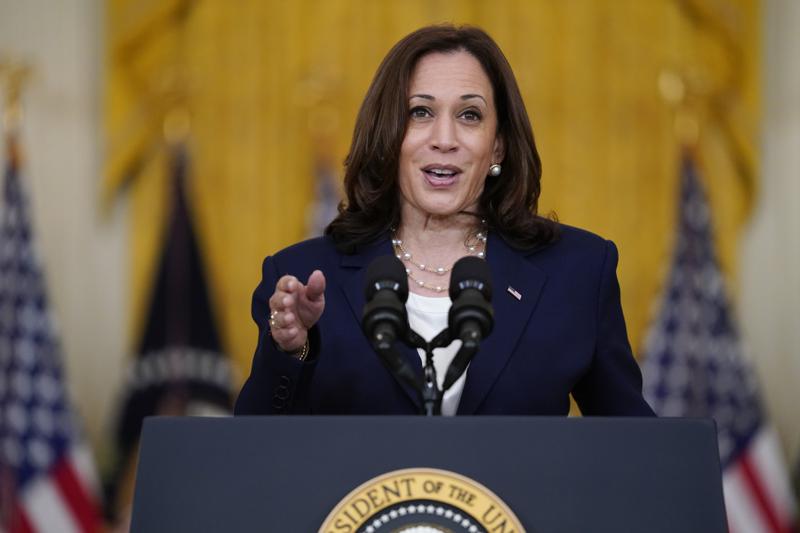The Taliban takeover of Afghanistan has given new urgency to Vice President Kamala Harris’ tour of southeast Asia, where she will attempt to reassure allies of American resolve following the chaotic end of a two-decade war.
The trip, which begins Friday and includes stops in Singapore and Vietnam, will provide a forum for Harris to assert herself more directly in foreign affairs. She will have opportunities to affirm what she and President Joe Biden view as core American values, including human rights. That’s especially important given concerns about the future for women and girls in Afghanistan with the Taliban back in power.
Advertisement
But there are also substantial risks. A longtime district attorney and former senator, Harris, is largely untested in international diplomacy and foreign policy. Her swing through Vietnam could draw unwanted comparisons between the humiliating withdrawal of U.S. troops there in 1975 and the tumultuous effort this week to evacuate Americans and allies from Afghanistan. And it’s all happening in the shadow of China, whose growing influence worries some U.S. policymakers.
“She’s walking into a hornet’s nest, both with what’s taking place in Afghanistan, but also the challenge of China that looms particularly large in Vietnam,” said Brett Bruin, who served as global engagement director during the Obama administration and was a longtime diplomat. “On a good day, it’s walking a tightrope. On a not-so-good day, it’s walking a tightrope while leading an elephant across. There’s just an enormous set of issues that she will run into from the moment that Air Force Two touches down.”
Harris struggled at points in June when her first major trip abroad took her to Guatemala and Mexico. Her unequivocal warning to migrants not to come to the U.S. angered some progressive Democrats while doing little to mollify Republican critics who said the administration wasn’t doing enough to address the growth of crossings at the southern border.
She’ll have a fresh chance to make a global impression when she arrives in Singapore, the anchor of the U.S. naval presence in Southeast Asia.
On Tuesday, she plans to deliver a speech outlining the U.S. vision for engagement in the region, and participate in an event with business leaders focused on supply chain issues.
Harris then heads to Vietnam, a country that holds both strategic and symbolic significance for the U.S. Leaders there have echoed U.S. concerns about the rise of neighboring China and the potential threat that could pose to global security. But it’s also a nation etched into American history as the site of another bloody, costly war with an ignominious end.











